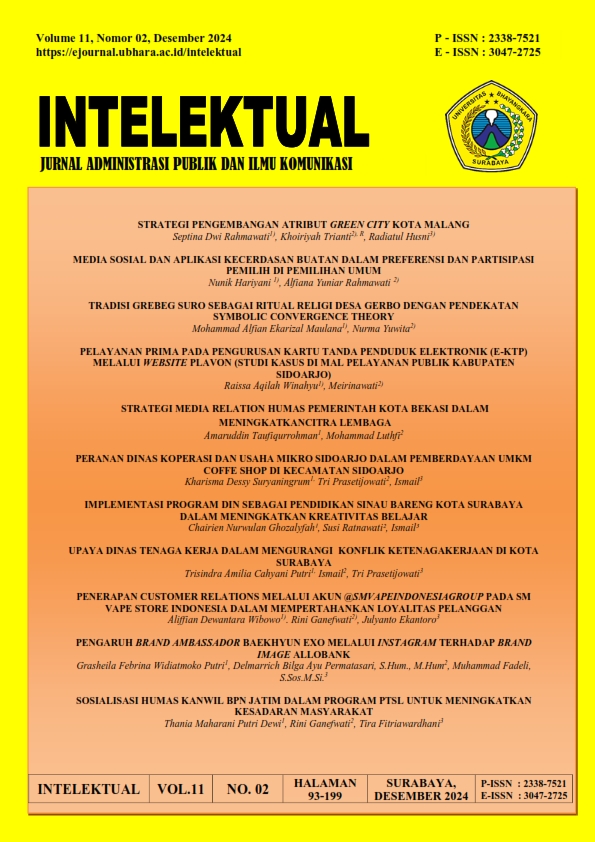Pelayanan Prima Pada Pengurusan Kartu Tanda Penduduk Elektronik (E-Ktp) Melalui Website Plavon (Studi Kasus Di Mal Pelayanan Publik Kabupaten Sidoarjo)
Isi Artikel Utama
Abstrak
The government implements the idea of e-government in order to meet the demands of its people for excellent service. The Sidoarjo District Population and Civil Registration Office has endeavored to improve excellent service in the field of population administration through a website called Service Via Online (PLAVON) as a form of e-government implementation. One of the types of population documents that can be submitted is the Electronic Identity Card (E-KTP). This study aims to describe the application of excellent service in the processing of Electronic Identity Cards (E-KTP) through the PLAVON website at the Sidoarjo Regency Public Service Mall (MPP) and uses descriptive research with a qualitative approach. The focus of the research uses the theory of e-government service quality (E-Govqual) according to Ari et al. (2021). The results showed: (1) efficiency, the PLAVON website is easy to access and uses language that is easy to understand; (2) reliability, services are completed on time; (3) trust, the PLAVON website has a guaranteed security system; (4) community support, the attitude of employees who can help applicants who have difficulties when making applications; (5) system quality, the website can function properly and does not error. A number of obstacles were also found such as the lack of up-to-date information on the flow of service procedures, uncomfortable waiting room conditions, limited number of employees, and unattractive website display.
Rincian Artikel

Artikel ini berlisensi Creative Commons Attribution-NonCommercial 4.0 International License.
Authors who publish with Intelektual: Jurnal Administrasi Publik dan Ilmu Komunikasi agree to the following terms:
- The author retains copyright licensed under Creative Commons Attribution-NonCommercial 4.0 (CC BY-NC 4.0), which allows others to remix, adapt, and expand on the author's work non-commercially, and even if someone else's new work must also acknowledge the author and is non-commercial, they do not need to license their derivative works on the same terms.
- Authors are permitted and encouraged to post their work online (e.g., in institutional repositories or on their websites) before and during the submission process, as this can lead to productive exchange, as well as earlier and greater citation of the published work ( See Impact of Open Access). Authors can archive preprints and postprints or publisher/PDF versions.

